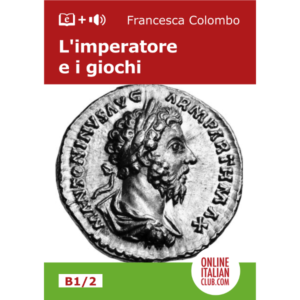Want to learn Italian for FREE? Here’s how:
- Our online material for learning Italian is organised in six levels, which you can access at any time
- There are downloadable checklists for each level, so you can monitor your progress
- The thousands of pages on this website are also organised by type: grammar, listening, conversation, dialogues, verbs, & vocabulary. You’ll find clickable icons in the website header
- ‘Join’ our club by signing up to our mailing list. You’ll get articles about learning Italian each Monday, Wednesday and Friday. Plus occasional promotions…
- Unsure where to begin? Read this article about how to learn Italian, and this article about levels, and/or do the level test
Need help?
- We have a FAQ!
- Or just go ahead and email your question (the address is at the bottom of each page)
- Still stuck? Well, how about some online Italian lessons? Teachers do have their uses…



